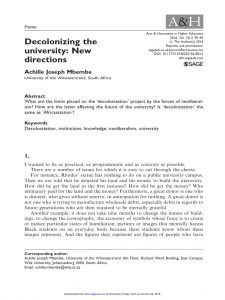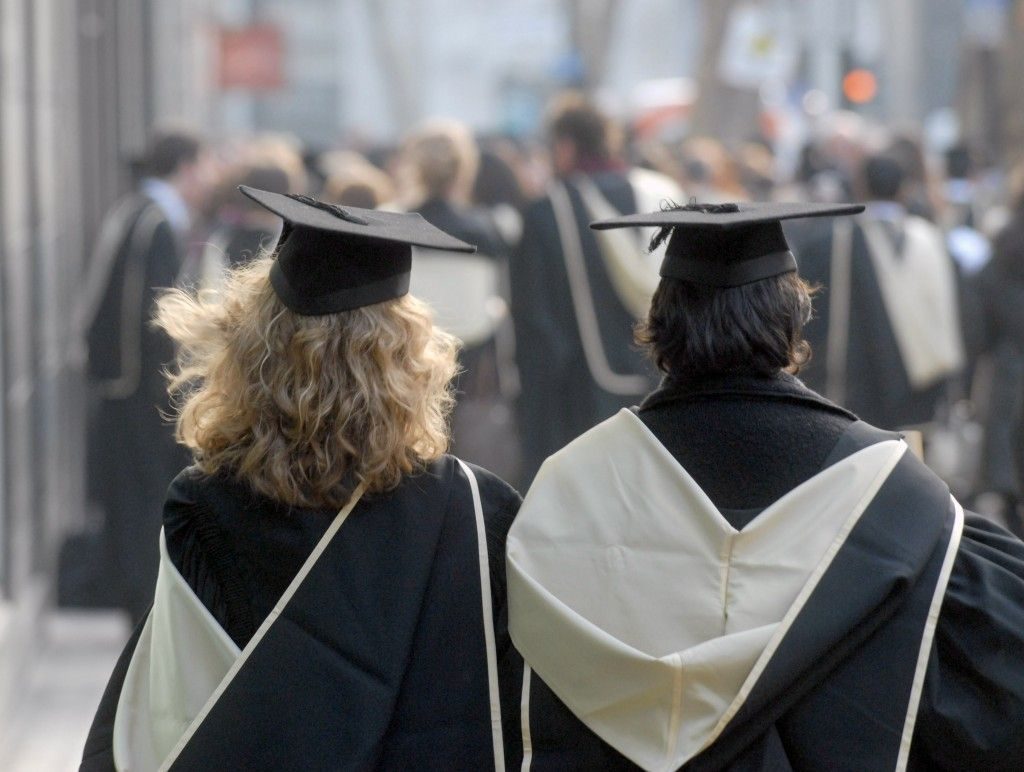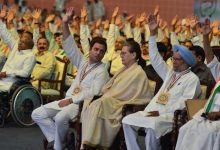India’s colonial past gave birth to the modern education system where ‘academically trained minds’ were supposed to serve the British Empire, not to challenge them. In fact, in current times, modern Indian universities prepare students to be a ‘servant’, not a leader to lead the society towards an egalitarian, a socially just utopia, point out Amit, our Editor-at-Large (Europe), in this erudite article, exclusively for Different Truths.
Our universities have failed us.
Almost every day, in the news we see, corrupts minds; the rapists, we abhor to death; politicians, who betrayed our faith in democracy; citizens, who utterly disregard the environment and disrespect/discriminate the vulnerable groups of our societies; arrogant bureaucrats, who govern people (rather than serve) with callous attitude; and an unjust system (police, justice, government institutions) where structured violence affects millions of marginalised on daily basis – all these actors and systems are products of our universities.
Cleary, our universities did not meet the expectations on which they were established. They might have produced a bunch of elites in the social-cultural and scientific milieu, have made a few rich and famous, however, they have failed to build a just society, where minds are free, hunger deaths are eliminated, and everyone’s dignity is respected.
What Went Wrong?
India’s colonial past gave birth to the modern education system where ‘academically trained minds’ were supposed to serve the British Empire, not to challenge them. In fact, in current times, modern Indian universities prepare students to be a ‘servant’, not a leader to lead the society towards an egalitarian, a socially just utopia. Our education system, a legacy of our colonial past, has divided us into rich and poor, Hindu and Muslim, upper and lower classes. University campuses have become the breeding grounds of fundamentalist politics rather than a place where social struggle and movement could take place.
This happened because our colonial past orients our modern education system. Though it’s not about serving the British Empire anymore, however, now, it’s about serving the interest of neo-liberal policies and their agents – upper middle class, political and social elites – who control and maintain an unjust system – whose constant effort is to keep millions of poor, hungry, and ignorant.
 Thus, to make our universities more humane, sensitive to the needs of the last marginalised groups, and a place where social revolutions could form and take place we need to decolonise our universities and education system, as Achille Joseph Mbembe (2016) has argued in ‘Decolonizing the University: New directions’.
Thus, to make our universities more humane, sensitive to the needs of the last marginalised groups, and a place where social revolutions could form and take place we need to decolonise our universities and education system, as Achille Joseph Mbembe (2016) has argued in ‘Decolonizing the University: New directions’.
The present and future of our universities are constantly decided by the capitalism and neo-liberal policies. As Joseph Mbembe (2016) has stressed that, “universities today are large systems of authoritative control, standardisation, gradation, accountancy, classification, credits, and penalties. We need to decolonise the systems of access and management insofar as they have turned higher education into a marketable product, rated, bought and sold by standard units, measured, counted and reduced to staple equivalence by impersonal, mechanical tests and therefore readily subject to statistical consistency, with numerical standards and units. We have to decolonise this because it is deterring students and teachers from a free pursuit of knowledge. It is substituting this goal of free pursuit of knowledge for another, the pursuit of credits. It is replacing scientific capacity and addiction to study and inquiry by salesman-like proficiency”.
The system of business principles has resulted in an obsessive concern with the periodic and quantitative assessment of every facet of university functioning. The grading and ranking of the universities by the Western and capitalist organisations have transformed universities in a ‘battel zone’ where only rich and famous institutions could dominate over the poor ones, which tend to be in the Third World countries.
To decolonise implies breaking the cycle that tends to turn students into customers and consumers. These tendencies are inherent in an institution run in accordance with business principles: the students have become interested less and less in study and knowledge for its own sake and more and more in the material payoff, or utility, which their studies and degree have in the open market. In this system, the student becomes the consumer of vendible educational commodities, primarily courses credits, certifications, and degrees. The task of the university from then on is to make them happy as customers.
We can observe this phenomenon in India where a large number of the powerful business house has entered in the education industry such as Jindals, Tatas, Birlas, etc. Thus, the final product of such capitalist products (students) is more driven by the economy than by the revolutionary needs of the social change in the Indian society. The idea of social struggle and emancipatory politics usually do not take place on such universities campuses, while restricting the access to marginalise because they could not afford to pay huge fees. Social responsibilities of such universities are limited to Corporate Social Responsibilities (CSR), which in reality look and feel good for such corporate universities. This represents a ‘colonial mindset’ where the majority are ignored by minority – the masses.
Also, it is wrong to believe that ‘nation-building’ could be achieved by ‘the national middle class’ or the ‘national bourgeoisie’. Because (as Frantz Fanon, The Wretched of the Earth, chapter 3, believed) middle class is lazy, unscrupulous, parasitic and above all lacking spiritual depth precisely because it has ‘totally assimilated colonialist thought in its most corrupt form’. The transfer (of the wealth and control) into native hands of Indian middle class and elites, who took unfair advantages, is a legacy of the colonial past.
Thus, until, a quality and ethical education, is accessible to all, with the purpose to create a just and fair society, won’t come into practice – we will keep reading news about corrupt, rapist, arrogant, and discriminatory Indians. We keep seeing hunger deaths, poverty, communal riots, and environmental degradation.
We need to rethink and refound our universities on the principles – which could lead our society in the direction, where the Indian Constitution wants us to be.
©Amit Singh
Photos from the Internet
#Universityfailed #StudentsOfUniversity #ColonialEducation #IndianConstitution #ThirdWorldCountries #CoverStory #DifferentTruths





 By
By
 By
By
 By
By